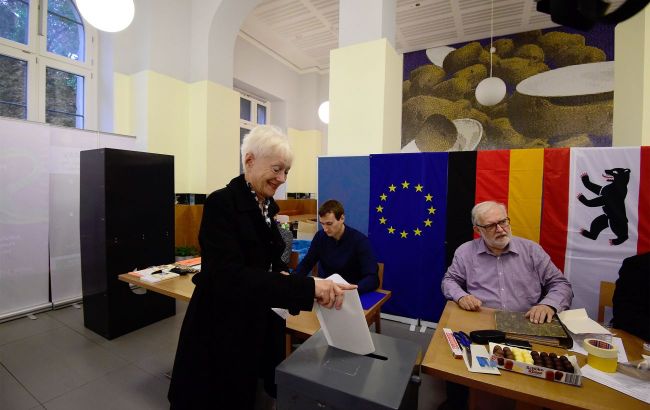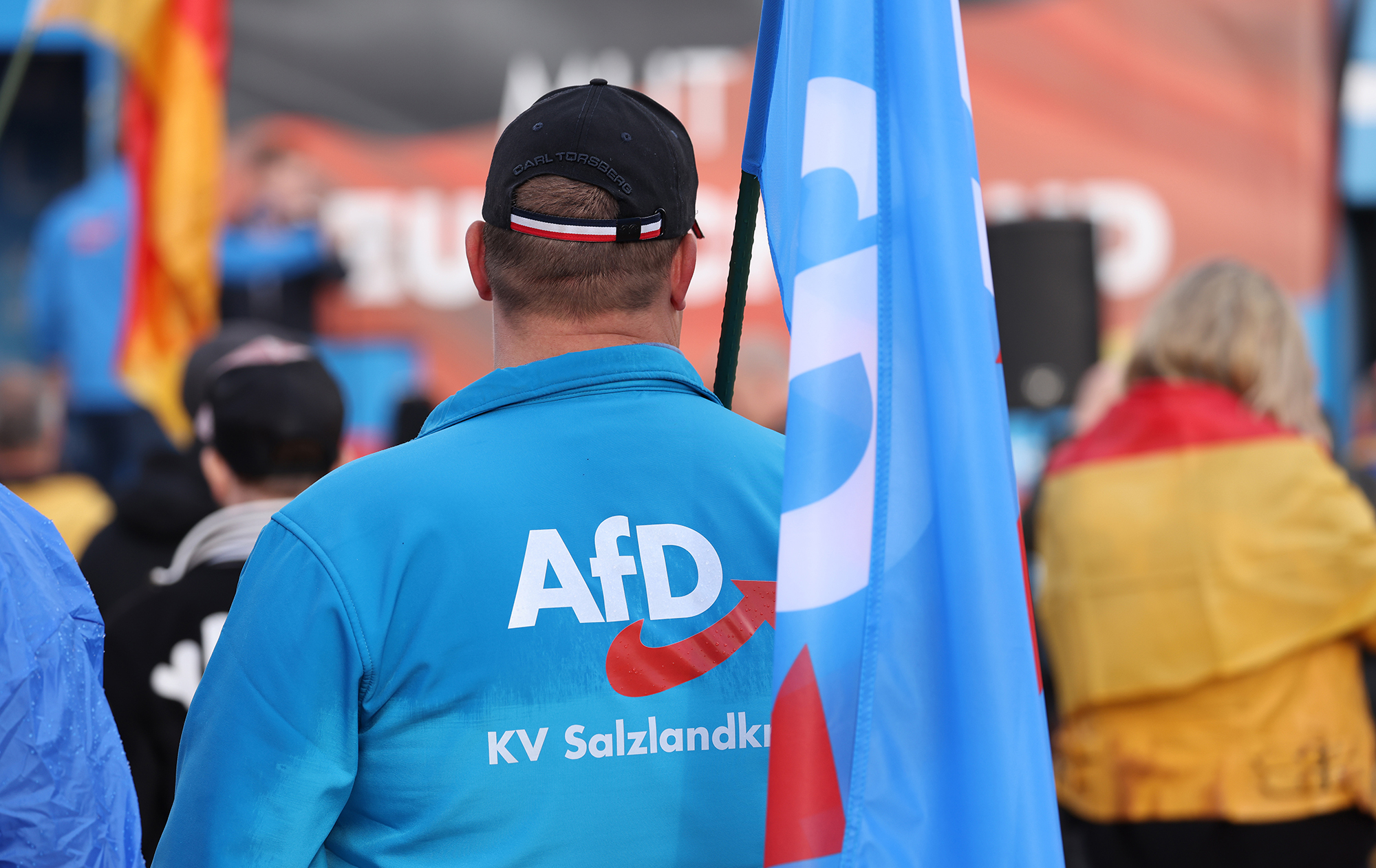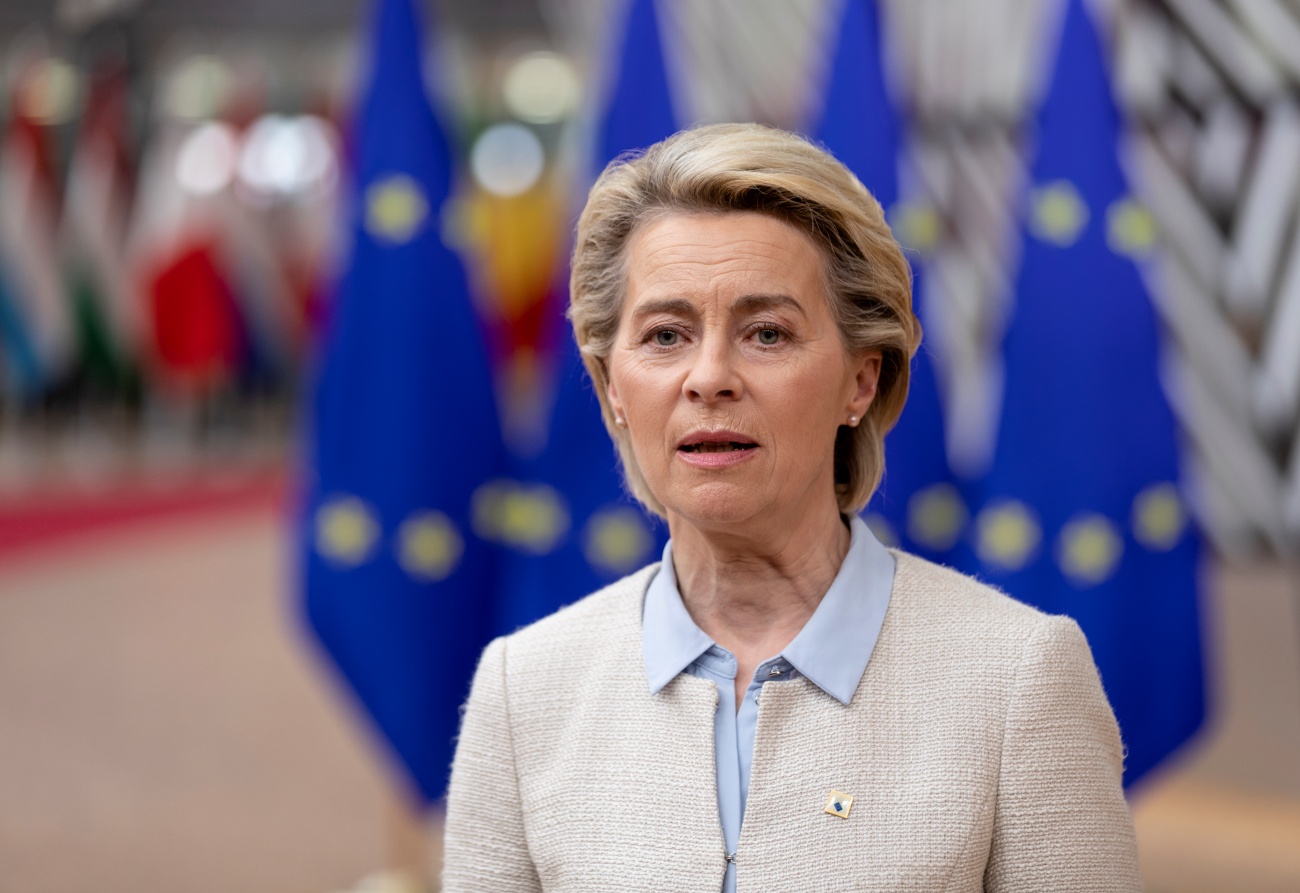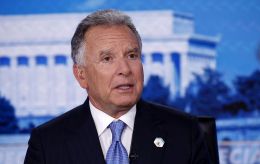European Parliament elections 2024: Key results
 Photo: Results of European Parliament elections (Getty Images)
Photo: Results of European Parliament elections (Getty Images)
The rise of right-wing and far-right parties, the dissolution of the French parliament, the precarious position of the President of the European Commission, and the struggle for undecided deputies.
RBC-Ukraine summarizes the main outcomes of the European Parliament elections.
Contents
- Rise of right-wing and far-right parties
- Dissolution of the French Parliament
- Von der Leyen fails to secure the EC President's seat
- Struggle for undecided MEPs
- European Parliament elections
The European Parliament elections, held from June 6 to 9, have concluded. Vote counting continues, but preliminary results are already known. These results will directly impact how other EU structures are formed and the course of united Europe.
For Ukraine, these elections are also crucial as they determine who will hold key positions in the EU: the President of the European Commission, the President of the European Council, the chief diplomat, and the defense representative. It will also determine whether the EU maintains its current level of unity in supporting Ukraine.
Rise of right-wing and far-right parties
Right-wing forces, from moderate to radical, are the undisputed winners of these elections. The center-right European People's Party (EPP) gained more than a dozen additional seats, the national-conservative European Conservatives and Reformists (ECR) strengthened, and the far-right group "Identity and Democracy" grew even more.
Key factors in their success include voters' increased interest in issues of national identity, culture wars on gender and LGBTQ topics, concerns about migration, and rising inflation.
The success of the right was particularly evident in key EU member states. In France, the far-right "National Rally" with 31.5% of the vote more than doubled its nearest rival - President Emmanuel Macron's "Renaissance." In Germany, the far-right "Alternative for Germany," with notable Nazi overtones, came second but outpaced Olaf Scholz's ruling Social Democrats and other coalition parties in the Bundestag. In Italy, the right-wing party "Brothers of Italy" led by Giorgia Meloni secured a victory, confirming her status as a rising star in European politics.
Regardless of which coalitions form in the European Parliament and how positions are divided, the voice of the right will undoubtedly become louder at the pan-European level. Among them are both Ukraine sympathizers like Meloni and openly anti-Ukrainian forces.

Photo: "Alternative for Germany" surpasses Scholz's party (Getty Images)
Dissolution of the French Parliament
An hour after the announcement of the preliminary election results in France, President Emmanuel Macron called for early elections to the National Assembly - the lower house of the French Parliament. The reason was the loud, though expected, failure of his party in the elections. "I have heard your message and will not leave it unanswered," the French leader addressed the voters. The first round of elections will take place on June 30.
The far-right party "National Rally," riding the wave of a confident victory in the European elections, naturally hopes to repeat its success in three weeks. But victory is not guaranteed.
The matter lies in the electoral system by which the National Assembly is elected - a two-round majority vote. In France, it has always worked against far-right candidates. Traditionally, French voters unite around any moderate candidate in the second round to prevent a far-right win. This system led to the defeats of both the founder of the "National Front" (later rebranded as "National Rally") Jean-Marie Le Pen and his daughter Marine Le Pen in presidential elections. Previous parliamentary elections in France have repeatedly demonstrated this pattern.
Nevertheless, Macron's political positions have noticeably weakened after these elections, while the French far-right is on the rise. This may affect the political landscape across Europe.
Von der Leyen fails to secure the EC President's seat
The European People's Party is undoubtedly the formal winner of the elections. Its faction in the European Parliament will become larger than in the previous term. "Today is a good day for the EPP. We won the European elections, my friends. We are the strongest party, we are the anchor of stability," said one of the EPP leaders, European Commission President Ursula von der Leyen, who is trying to secure a second term in this position.
To do this, she needs to gather a majority of 361 votes in her favor in the new European Parliament. Various coalition options were discussed before the elections, but it seems von der Leyen has made her choice. She promised to stop the extremes of the left and right and announced negotiations with the Social Democrats and liberals from the "Renew Europe" group.
 Photo: Ursula von der Leyen may not remain the head of the European Commission (Getty Images)
Photo: Ursula von der Leyen may not remain the head of the European Commission (Getty Images)
In 2019, this coalition secured her seat. Currently, the EPP, Social Democrats, and "Renew Europe" together hold 404 mandates in the new parliament. However, this may not be enough - it is expected that 10% of the coalition members will not support her candidacy, meaning the votes may fall short. In the coming days, von der Leyen will focus on convincing dissenters within the allies, optionally trying to attract "spare" votes to the coalition.
Struggle for undecided MEPs
Almost a hundred newly elected MEPs do not belong to any established parliamentary groups. A fierce battle for their allegiance is expected. For instance, if the "Alternative for Germany" is brought back to the far-right "Identity and Democracy" group, it will move from fifth to fourth place in terms of seats. Viktor Orbán's Hungarian "Fidesz" will also strengthen the ranks of national conservatives or far-right radicals.
Before the elections, there was much discussion about a scenario where von der Leyen might try to create a right coalition with the European Conservatives and Reformists, and even with "Identity and Democracy." But it seems the EC President has chosen a different path. As a result, despite their election success, the right-wing forces may be left out in the allocation of EU positions.
However, they have the opportunity to cause trouble for von der Leyen and other moderate MEPs. By gaining support from the undecided, the European Conservatives and Reformists could merge with "Identity and Democracy" into a large far-right group in the European Parliament, an idea that was floated before the elections. If this project is realized, the new faction could become the second largest in the European Parliament.
European Parliament elections
The European Parliament elections took place across the EU from June 6 to 9. The new European Parliament will start its work on July 11. The first task for the MEPs will be to appoint the President of the European Parliament. Roberta Metsola will likely be re-elected to this position.
For more detailed information on the European Parliament elections, read the RBC-Ukraine article.

